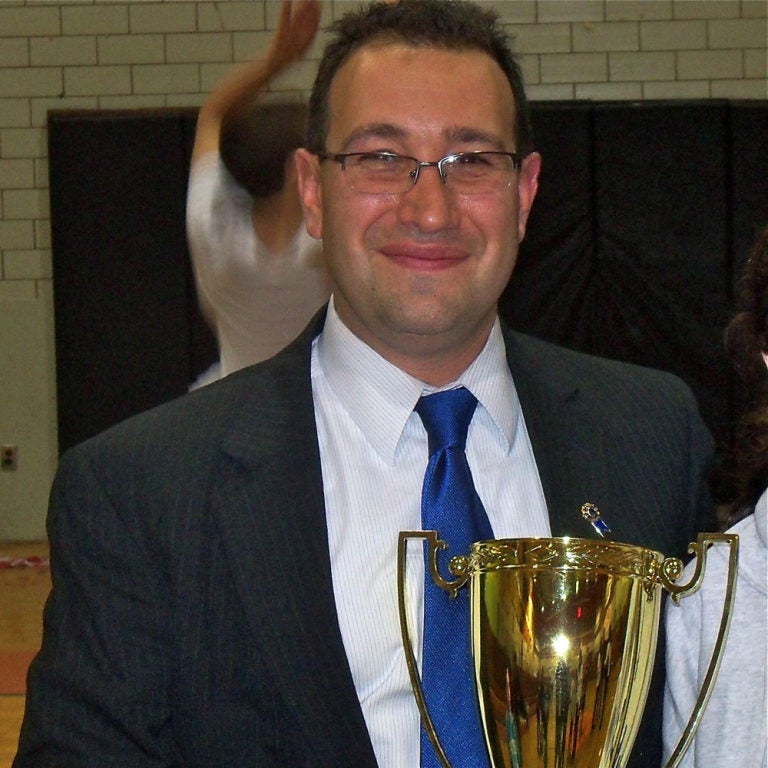

When Alhassan Susso and I keynoted a conference event in January 2019, little did we know that we would establish a friendship and brotherhood. Since that time, Mr. Susso has delivered several keynote addresses for my company, GOMO Educational Services. He is truly a gifted speaker who utilizes components of his personal and professional journey to deliver every presentation with authenticity and reflection. As a result, attendees can picture themselves in his stories from his perspective. Keynote addresses send vital messages when an organization seeks to get their staff members an inspirational boost or movement in a direction. Mr. Susso has done just that for GOMO Educational Services each time.
Dr. Josue Falaise, CEO
GOMO Educational Services
Wow! Just Wow! The keynote address from Alhassan Susso was so powerful and timely considering all we are dealing with as educators during this COVID-19 crisis. Alhassan Susso captivated the entire audience from beginning to end; even a virtual barrier proved to be no barrier to this impactful educator. It was the perfect message to start the uncertainty of this school year; a not so subtle reminder that we control the perspective and we control the narrative and that we may be the only hope and the only lifesaver our students may have. I challenge any human to walk away unmoved, untouched, and forever unchanged. Alhassan Susso understands what motivates us all as educators and brings it bubbling to the service. I’m sure if Alhassan Susso could see the viewers, there would be few dry eyes.
Ronald Corn, Director of Curriculum and Instruction
Haddon Heights School District
This past week, our district had the distinct pleasure of hosting Alhassan Susso for a motivating keynote address. By sharing his personal journey, Mr. Susso clearly demonstrated the power of perseverance and determination. Overcoming incredible odds, he came out on the other side as a true changemaker, impacting the lives of students and educators alike. His thought-provoking questions and positive mindset serve as an inspiration to us all! Thank you, Alhassan Susso for providing top-notch professional services to our team!
Julie Lyons, Director of Elementary Education
Waterford Township School District
Alhassan Susso was inspiring and has the Union and Franklin Township Schools moving in the right direction! Powerful message!
Nicholas Diaz, Superintendent
Union and Franklin School Districts
Alhassan Susso is an inspiring speaker; it was truly an impressive story. I received many emails about how moving the convocation speech was. Looking forward to working with GOMO!!!
Robert Kravitz, Superintendent
Englewood Public Schools
By empowering his students, by helping them to believe in themselves, he gives his high school students the tools they need to chart their own future. It is no surprise that some of his graduates now want to become teachers themselves.
Michael Mulgrew, President
United Federation of Teachers
Alhassan is living proof that every child in this country deserves a quality education and an opportunity to thrive.
Sara A. Sneed, President
NEA Foundation
Our Services
Dealing with Difficult Students
Throughout human history, psychology provides an answer to the age-old-question, "Why do human beings do what they do?" How is it that one person sacrifices their life for the betterment of others and another individual can murder a stranger for sheer pleasure? Regardless of who you are or what you do in this world, we're all driven by something. This universal force is “Human Needs.”
In this keynote address, attendees will learn:
• The Six Human Needs that drive human behavior.
• How to uncover students’ top two needs.
• How to empower students to meet their needs in a more positive manner.
Creating a Courageous Classroom
Authenticity is the key that fosters the creation of a courageous classroom. But it is difficult, if not impossible, to discuss authenticity without addressing the issue of vulnerability. The fear of being perceived as weak hinders our students' ability to take risks, tackle challenging tasks or to simply learn. Above all, students would sometimes build shields through aggression or comedic behavior to create distraction from their real fear.
The anecdote of vulnerability is empathy. In this keynote address, attendees will learn:
• Methods of empowering students to cultivate a culture of empathy, compassion and learning in the classroom.
Developing the Right Attitude and Mindset for Success
One’s mindset, as research on human intelligence has shown, can often determine one’s success even before one begins the challenge at hand. This is particularly true for students. Too often, the task of teaching is lost on day one, when many students either have a negative view of school or of themselves.
Our internal beliefs about our own abilities, skills, and potential, fuel learning habits and ensure success. Stanford psychologist Carol Dweck argues that the pivotal quality separating successful people from their unsuccessful counterparts is whether they think their intelligence can be developed versus believing it is fixed. “There is no relation between students' abilities or intelligence and the development of mastery-oriented qualities. Some of the very brightest students avoid challenges, dislike effort, and wilt in the face of difficulty. And some of the less bright students are real go-getters, thriving on challenge, persisting intensely when things get difficult, and accomplishing more than you expected.”
How do we achieve such a daunting task?
In this keynote address, attendees will acquire the knowledge and skills of cultivating an achievement mindset by understanding the concepts of Quality Quantifier, Limiting vs. Empowering Beliefs and the Driving Forces Behind Human Behavior.
Relationships: The Difference Maker
At the core of teaching is cultivating and nurturing relationships. This simple human approach has the potential to transform students’ lives. This method of teaching is intended to create safe and productive learning environments where academic excellence thrives. As compassion thrives in the classroom, so does learning.
Learning in the classroom can easily be achieved if the students we are teaching feel valued in the process. It doesn’t matter how outstanding our lessons are, how skilled we are at delivering those lessons or how knowledgeable we are in our subject matter (which are all at the core of great teaching), if our students do not know how much we care about them.
In this keynote address, attendees will learn the different methods of developing a culture of respect, tolerance and understanding in the classroom, which naturally foster learning.